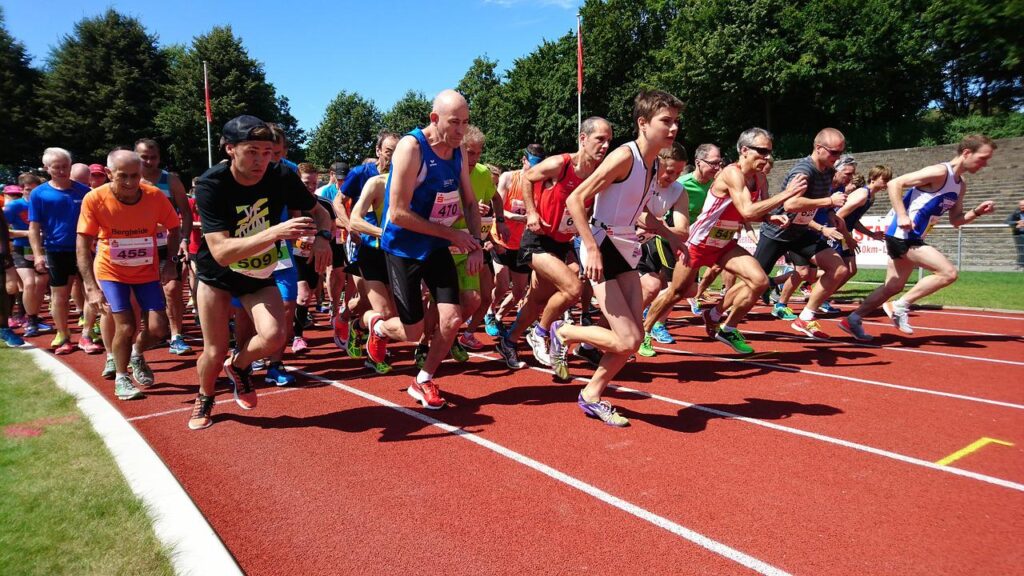When you think about the biggest achievements in your life, they will probably have been accompanied by periods of peak motivation. Whether you were motivated by a challenge, money, passion or hardship – there was something that spurred you on to take action and deliver.
Endless examples demonstrate the power of motivation:
- How can someone who finds it difficult to wake up early, board a plane at 5am to go on holiday?
- Why is Wikipedia, a voluntary contribution encyclopaedia, the market leader?
- Why does the average number of gym visits increase in January every year…
All else equal, motivation can clearly be a factor to improve our careers and lives more generally.
What motivates us?
In his book Drive, Daniel Pink provides a nice summary of the evidence on motivation and performance.
We can broadly think about motivation falling into three broad groups:
- Biological drive – to satisfy our basic needs or hunger etc.
- Incentives – reward and punishment
- Intrinsic motivation – inherent satisfaction in an activity
The first two are pretty self-explanatory. Daniel presents the argument that the third type, intrinsic motivation, is grossly under-utilised. It can be broken down into three elements:
- Autonomy – giving people autonomy over tasks and the various aspects of how they deliver something.
- Mastery – improving your ability to do something. The optimal way to work towards mastery is when the challenges we face are stretching and matched to our abilities.
- Purpose – having a strong sense of why you are doing something and believing in what you are trying to achieve.
Becoming more motivated
Now we know the different types of motivation, what are some practical things we can do to get more motivated and motivate others?
- Finding a purpose driven project (PDP) – there are so many PDPs to choose from inside and outside of work, so it’s better to just get started and see which ones you enjoy the most. They will tap into your intrinsic motivation by giving you autonomy, mastery and purpose. Why do you think I’m writing this blog now instead of putting my feet up on the sofa?
- Join a group / have an accountability partner – this is easily one of the most effective things to tip the balance in those moments of weakness. When you are part of a group you can motivate each other to keep going. Think running clubs etc.
- Set goals and deadlines – working towards a deadline or goal like a launch date or 10k run gives you something to work towards. This creates a commitment which ties you into doing something. I think this is the key benefit of agile project management. You can flex on deliverables but not deadlines, which means everyone is still motivated towards delivering something.
- Record performance – recording performance like 100m sprint times or the weight you are lifting in the gym gives you something to try to compete against.
- Consistency is better than duration – if you spend too long on something it can be hard to find the motivation to even start sometimes. It is far better to do something regularly for shorter periods. For example, if you’re not motivated to write a book, then start with a page a day and go from there. You’ll almost certainly find that once you’ve started something you will easily spend a comfortable amount of time on it. Then, as they say, slowly but surely wins the race!
- Treat yourself – you could use lure of rewards to reach milestones in your life. Why not line up a nice present only when you get a promotion or when you work to achieve something you think is notable in your life. I’ve built a small watch collection using this method 😀
- Do intense exercise regularly – going for a walk is great, but I believe intense exercise has wider benefits. Part of the reason we lose motivation to do something is because it is difficult or challenging. When you do intense exercise you set a personal benchmark for the level of challenge you can push through – I’m talking about dripping in sweat and pushing through to the end even when you want to stop. Most other things in your life will seem easily doable and so require less motivation. I personally like martial arts, sprints, HIIT training etc.
- See the deeper purpose in routine activities – sometimes I don’t feel motivated to go to work (don’t we all!), but when I think about the life I’m able to provide for my children through the money I earn I can very easily get through the day.
When motivation fails
We all have times when we aren’t motivated, but this is when a strong habit system comes to the rescue. If you’ve got a habit nailed down, then you’ve largely removed the need for motivation, as the tasks or action become second nature. If you are tracking your habits, then you can see where you’re going off track and take action to change this.
For example, if you are tracking how often you exercise and notice you aren’t exercising X times per week, then you can take some of the above actions to get yourself back on track.
See my previous blog on habit tracking.
Are there things in your life that you want to achieve where you could benefit from extra motivation?
Let us know in the comments below…
Further reading:
Drive: the surprising truth about what motivates us (Pink, 2018)
Flow: The Psychology of Optimal Experience (Milahy, 2008)
Self-Determination Theory and Motivation
The Vital Importance and Benefits of Motivation

I was pretty pleased to discover this great site. I want to to thank you for ones time due to this fantastic read!! I definitely appreciated every part of it and I have you book marked to look at new stuff on your web site.